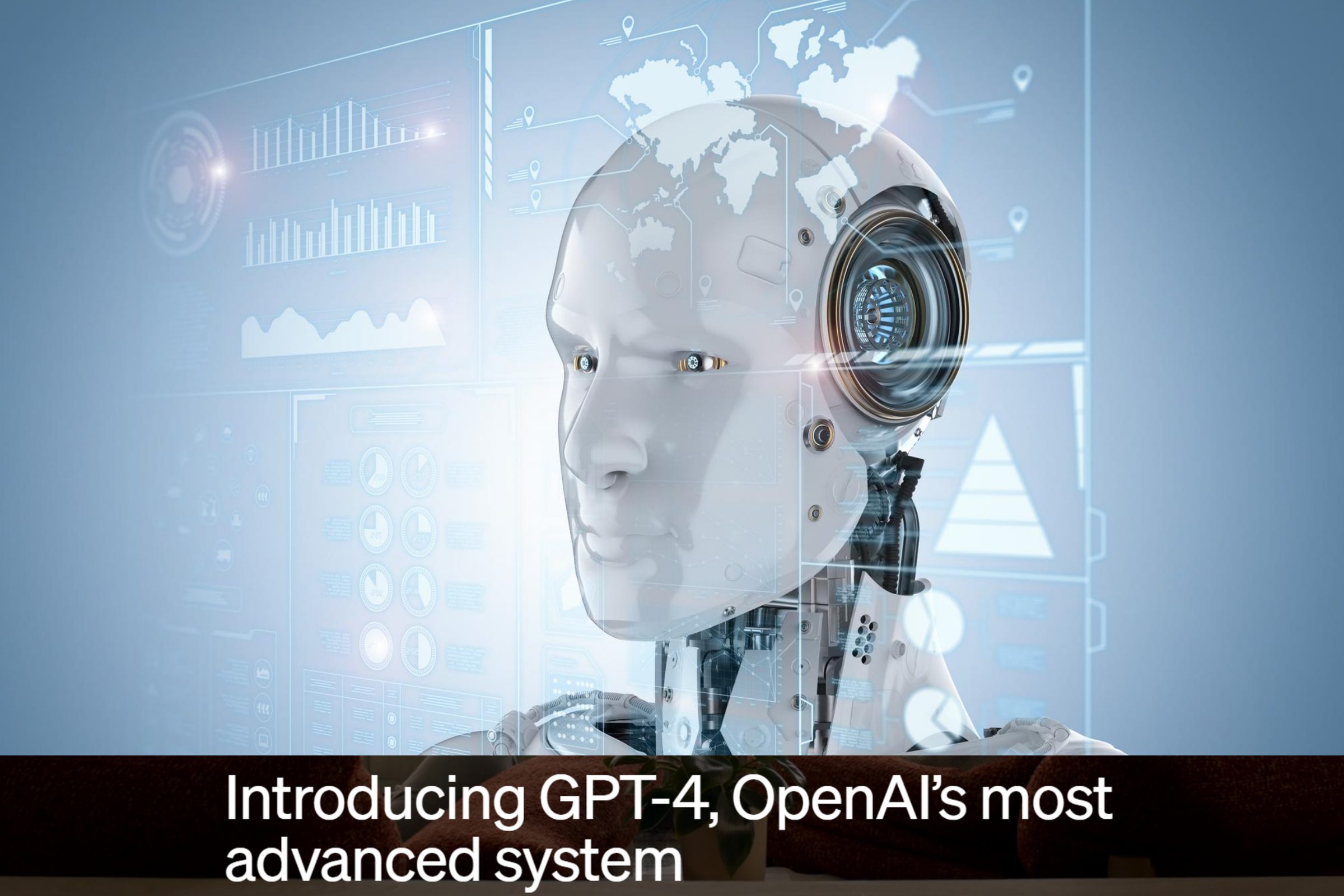On March 14th, 2023, OpenAI announced the launch of its GPT-4, its latest deep learning model designed to handle both text and image inputs.
While it may not have the finesse of a human in certain real-world scenarios, the newly released GPT-4 flaunts human-level performance on an array of professional and academic benchmarks.
One particularly striking achievement of the GPT-4 is its outstanding score on a simulated bar exam, landing in the top 10% of test takers. This feat surpasses its predecessor, GPT-3.5, which languished in the bottom 10%.
OpenAI dedicated six months to fine-tuning GPT-4 through an adversarial testing program and fruitful collaboration with ChatGPT.
In order to bring GPT-4 to life, OpenAI overhauled its entire deep learning stack and co-designed a supercomputer with Azure to cope with its colossal workload. They used GPT-3.5 as a test run, honing improvements to their theoretical foundations, which ultimately paved the way for a more stable GPT-4 training run. OpenAI remains committed to refining its methodology in anticipation of future advancements, ensuring the utmost safety.
The magic of GPT-4’s text input capability will be unleashed via ChatGPT and the API, while its image input aptitude will be accessible through a single partner. OpenAI is also generously open-sourcing OpenAI Evals, their framework for the automated evaluation of AI model performance, allowing anyone to report model weaknesses in order to guide further enhancements.
According to OpenAI, GPT-4 is more reliable, imaginative, and capable of handling far more intricate instructions than GPT-3.5. Its stellar performance on a variety of benchmarks, including simulated exams originally crafted for humans, establishes a new gold standard in the world of deep learning technology.
Availability
According to OpenAI, GPT-4 is currently available exclusively to customers with a paid ChatGPT account, specifically those who have subscribed to ChatGPT Plus.
Opinion:
The unveiling of GPT-4 represents a significant milestone in the advancement of deep learning technology. Exhibiting human-like prowess on professional and academic benchmarks, particularly the simulated bar exam, GPT-4 demonstrates its remarkable potential. This achievement bears witness to OpenAI’s unwavering commitment to innovation and the pursuit of perfecting AI technology.
By outpacing GPT-3.5, GPT-4 has paved the way for AI to evolve into an even more formidable instrument for addressing intricate real-world challenges. The decision to open source OpenAI Evals highlights the organization’s emphasis on cultivating a cooperative atmosphere, which enables the discovery of shortcomings and the enhancement of future versions.
While it is crucial to recognize the triumphs of GPT-4, we must also be mindful of the potential pitfalls associated with increasingly advanced AI technology. Ensuring safety and avoiding unintended consequences must remain a priority for researchers and developers.
OpenAI’s resolve to refine its methodology in anticipation of future capabilities represents a laudable approach in striving for secure and advantageous AI that benefits humanity.
As we all delve deeper into the world of AI, one cannot help but wonder what the future holds for this rapidly evolving field.
Reference and Source:









